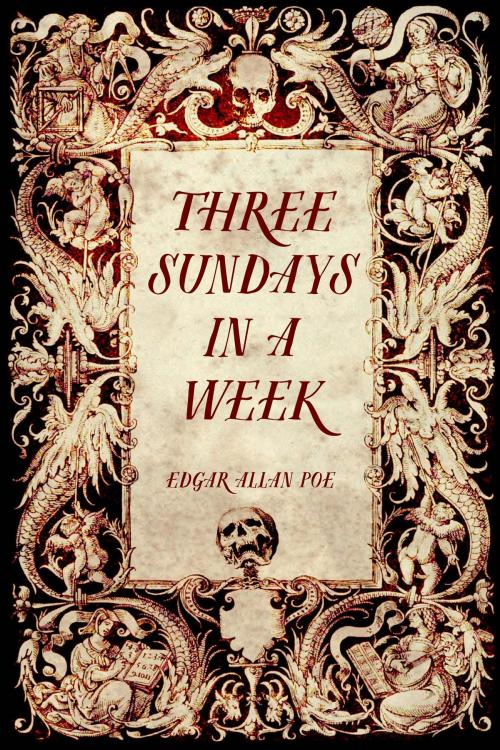| Author: | Edgar Allan Poe | ISBN: | 9781518312229 |
| Publisher: | Krill Press | Publication: | November 26, 2015 |
| Imprint: | Krill Press | Language: | English |
| Author: | Edgar Allan Poe |
| ISBN: | 9781518312229 |
| Publisher: | Krill Press |
| Publication: | November 26, 2015 |
| Imprint: | Krill Press |
| Language: | English |
Edgar Allan Poe (1809-1849) is one of America’s greatest and most dark and mysterious writers. The circumstances surrounding his untimely death are still unknown, as is what made him tick. Part of the American Romantic Movement, Poe is best known for his tales of mystery and the macabre, and he was one of the first Americans to master the art of the short story. Long before Sherlock Holmes became famous, Poe invented the genre of detective fiction, and his works influenced literature around the world in genres as wide ranging as cosmology and cryptography. Poe and his work still appear throughout popular culture today, popping up in literature, music, films, and even on the gridiron; the NFL’s Baltimore Ravens got their name from his most famous poem.
Poe's best known fiction was Gothic, which was extremely popular at the time. Poe was a master of the genre, but he also realized that it would help him live off his writing, which was his goal. As a result, his most common themes involved death and madness, including its signs and physical manifestations. The darkness of his work is considered by many to be a reaction to Transcendentalism, which Poe strongly disliked.
Edgar Allan Poe (1809-1849) is one of America’s greatest and most dark and mysterious writers. The circumstances surrounding his untimely death are still unknown, as is what made him tick. Part of the American Romantic Movement, Poe is best known for his tales of mystery and the macabre, and he was one of the first Americans to master the art of the short story. Long before Sherlock Holmes became famous, Poe invented the genre of detective fiction, and his works influenced literature around the world in genres as wide ranging as cosmology and cryptography. Poe and his work still appear throughout popular culture today, popping up in literature, music, films, and even on the gridiron; the NFL’s Baltimore Ravens got their name from his most famous poem.
Poe's best known fiction was Gothic, which was extremely popular at the time. Poe was a master of the genre, but he also realized that it would help him live off his writing, which was his goal. As a result, his most common themes involved death and madness, including its signs and physical manifestations. The darkness of his work is considered by many to be a reaction to Transcendentalism, which Poe strongly disliked.






![Cover of the book The Comedy of Errors: The Works of William Shakespeare [Cambridge Edition] [9 vols.] by Edgar Allan Poe](https://www.kuoky.com/images/2016/january/300x300/9781518384790-MlI1_300x.jpg)








